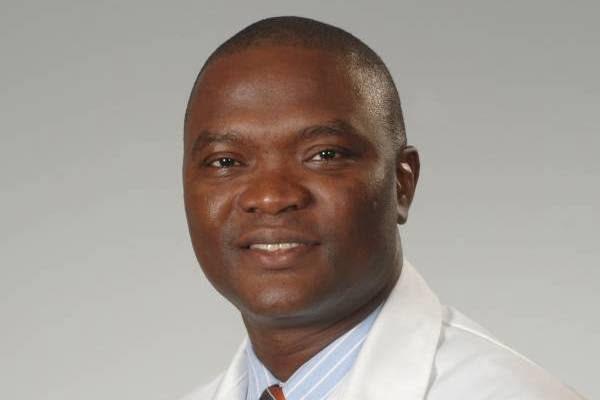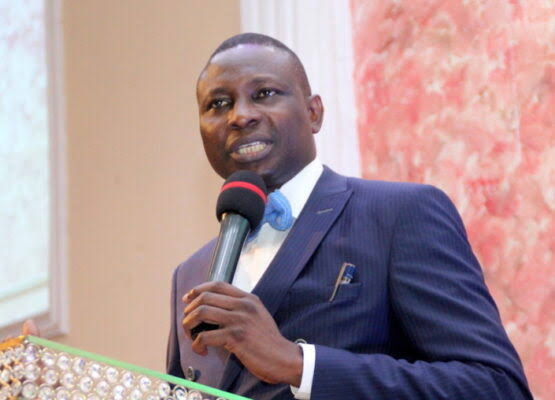Recently, there have been vociferation from different corners on the professorship status of the new Special Adviser on health matters to the Kwara state governor, Dr. Wale Sulaiman.
The neurosurgeon who our correspondent reliably gathered work with the last administration as board Chairman of Harmony Advanced Diagnostic Centre, during anoucement of his appointment was said to be “a visiting Professor to many universities in the United States, Canada and Nigeria, among others,” though the statement by the governor’s press secretary, Rafiu Ajakaye did not butress further on a particular university that bestowed the don with a professorship.
According to Wikipedia, In most systems of academic ranks the word “professor” only refers to the most senior academic position, sometimes informally known as “full professor”. In some countries or institutions, the word “professor” is also used in titles of lower ranks such as associate professor and assistant professor; this is particularly the case in the United States, where the word professor is sometimes used colloquially to refer to anyone in an academic post. This colloquial usage would be considered incorrect among most other academic communities. However, the unqualified title Professor designated with a capital letter usually refers to a full professor also in English language usage.
In the official website of the Association of Nigerian Physician in The Americas, Dr. Sulaiman is said to have completed a combined MD/MSc degree at Medical University in Varna, Bulgaria. He was siad to have proceeded to University of Alberta in Edmonton, Alberta where he earned a PhD in neurosciences and then completed his neurosurgery residency at the University of Manitoba in Winnipeg, Manitoba. However, this website was silent in him being a professor in any field nor visiting lecturer.
Further research into professorship in the United States revealed that there are many other professorship aside from the full professor some of which are the professors of practice and likewise research professors.
Professors of the Practice have commonly been reserved for practitioners who are appointed because of skills and expertise acquired in nonacademic careers and whose primary focus is teaching. This designation is bestowed on individuals who have achieved a distinguished career in a specific field of practice (engineering, management, business, law, medicine, architecture etc.), and will have a substantial basis of experience equal to a tenured professor (normally a minimum of 12 years) and a national/international reputation for excellence reflected in a record of significant accomplishments. Such appointments are also being offered to individuals with academic career backgrounds. These latter professors of practice are principally engaged in teaching and are not expected to be significantly involved in research activities.
Meanwhile the Research Professors is a position that usually carries only research duties with no obligation for teaching. Research professors usually have no salary commitment from their institution and must secure their salary from external funding sources such as grants and contracts. (These are often known as “soft money” positions.) Although research professor positions usually are not eligible to be awarded tenure, their ranks parallel those of tenure-track or analogously instructional-only positions.
Analysing the visiting professor status, they are hired with a college or university to teach for a limited time. It might be someone who is a professor elsewhere, or a scholar or practitioner who is not. The term may also refer simply to non-tenure track teaching appointments (usually 1 to 3 years) and/or post-doctorate research appointments. While a clinical professor engages in practical instruction (of professional students) typically with an emphasis on practical skills as opposed to theory. This generally is not a “tenure track” position, but can be either full- or part-time. These types of appointments are common in law, medicine, and business schools, and are sometimes referred to as ‘professor of practice’.
However, a closer look into the website of Tulane University, a private research university in New Orleans, Louisiana uncovered that the new Special Adviser is indeed a professor and holder of FRCS(C)- a regulatory college which acts as a national, nonprofit organization established in 1929 by a special Act of Parliament to oversee the medical education of specialists in Canada as against the wide speculations.
The foreign university website further reads that he is a professor of clinical neurosurgeon in the school’s department of medicine. Though very silent on his academic profile, they said he has clinical interest in complex spine, spinal oncology, mis spine, peripheral nerve tumors, injuries, and entrapment.
The controversy on the professorship status of the new health adviser might persist till probably when unanswered question on which Varsity bestowed him with the title is unveiled.



